Psoriasis is a skin disease—and 6 other myths to forget
No, it’s not contagious and it’s not caused by bad personal hygiene.

An estimated 7.5 million Americans live with psoriasis, a condition characterized by red, itchy lesions on the skin. Despite its prevalence, there are lots of myths and misconceptions surrounding the different types of psoriasis—many of which cast undue judgment on those living with it.
The bottom line? Psoriasis is more than skin deep—it’s a chronic condition that can affect one’s physical health, mental health, social interactions and everyday life. Here’s how.
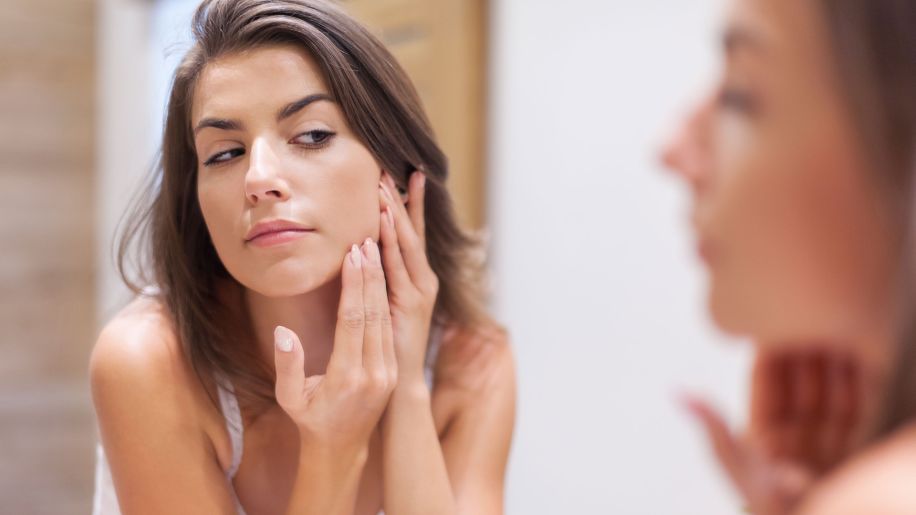
Psoriasis is only a skin condition
Although psoriasis causes lesions to form on the surface of the skin, it’s actually an inflammatory, autoimmune disorder, or a condition that causes the immune system to attack itself. Because it’s inflammatory, psoriasis is linked to heart disease, type 2 diabetes, psoriatic arthritis and other long-term conditions.
So, if it’s a body-wide disorder, why do lesions develop? Inflammation of the skin causes rapid skin cell production. In a person without psoriasis, new skin cells surface every 28 to 30 days; in a person with psoriasis, skin cells surface after only three to four days. Because the body can’t shed the old skin cells fast enough, the new cells pile up on top of them, forming thick, red, itchy patches.

Psoriasis is contagious
Because psoriasis causes red, inflamed lesions on the skin, many people believe it’s contagious or that a person living with psoriasis has poor personal hygiene. Both of these notions are 100 percent incorrect.
The skin lesions you might see on a person with psoriasis are actually caused by the overproduction of new skin cells. The condition isn’t contagious, nor is it caused by poor personal hygiene. You cannot “catch” psoriasis from touching, hugging, kissing or sharing food with a person living with the condition.

Psoriasis only affects the skin
Although psoriasis manifests as red, itchy patches on the skin, it actually affects the entire body—including one’s vital organs, joints and emotional health.
People living with psoriasis are at an increased risk of developing other serious, chronic conditions:
- Cardiovascular disease: Cardiovascular disease is the number one cause of death in the US, and people with psoriasis have increased risk. In fact, those with severe psoriasis are 58 percent more likely to experience a major cardiovascular event, like a heart attack, and 43 percent are more likely to have a stroke.
- Cancer: Psoriasis has been linked to certain types of cancers, like lymphoma and nonmelanoma skin cancers.
- Diabetes: Obesity and type 2 diabetes have been long linked to psoriasis. People with psoriatic disease are more likely to be obese and 30 percent more likely to develop type 2 diabetes.
- Depression: Due to the effects of psoriasis—including inflammation, negative social stigmas and low self-esteem—people with psoriasis can develop depression. Those with psoriatic arthritis have an even greater risk of depression.
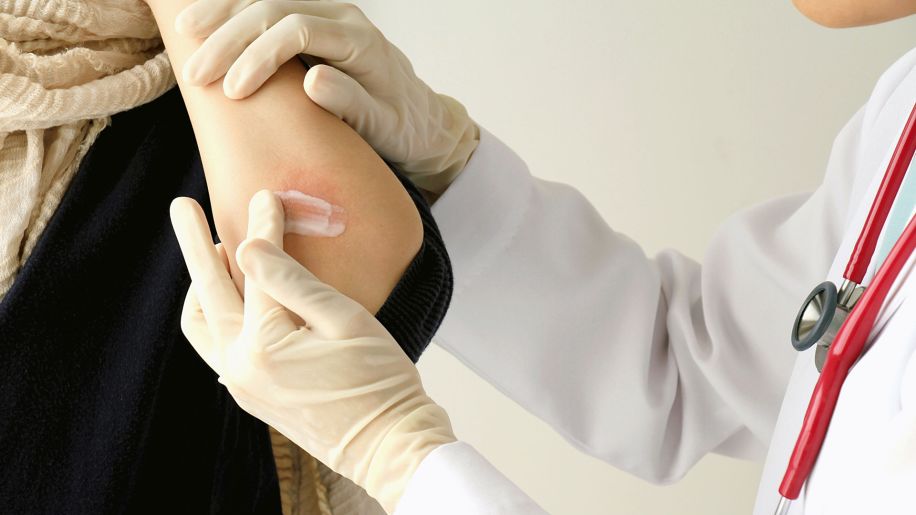
Psoriasis and eczema are the same thing
Both psoriasis and eczema cause itchy lesions on the skin and have similar triggers like stress, so it can be difficult to distinguish between the two conditions. There are, however, some key differences.
Number one? Psoriasis is a chronic, autoimmune disorder, while eczema is generally an inflammatory response to an allergen, irritant and, sometimes, stress.
Because the causes are different, the conditions manifest differently, too. Psoriasis causes thick, well-defined patches of skin that look scaly, and can be red, white or silver. Eczema looks red, dry and cracked, and can sometimes blister or weep.
If you’re developing itchy, red patches of skin, make sure to track your symptoms and potential triggers. It’ll help your healthcare provider better diagnose and treat your condition.

Psoriasis is preventable
It’s true that some risk factors for psoriasis are preventable—like maintaining a healthy weight, managing stress and avoiding alcohol and tobacco. But some researchers believe there’s a genetic component to psoriasis, too. Approximately 10 percent of the general population has one or more of the genes responsible for psoriasis.
So, why don’t more people have psoriasis? Only two to three percent of those who are predisposed to psoriasis have all of the genetic components and are exposed to environmental triggers that cause the disease to develop. Basically, for psoriasis to develop, it needs a “perfect storm” of genetic and environmental factors.
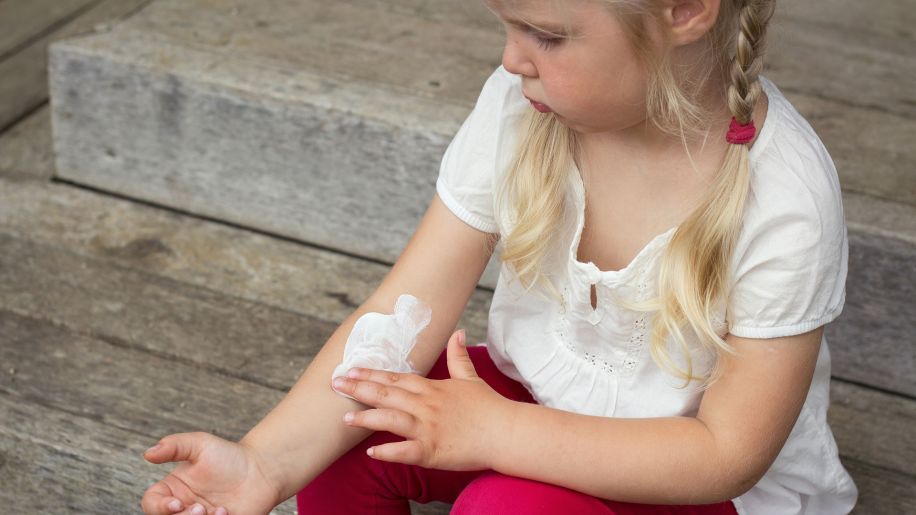
Psoriasis is an adult condition
Those living with psoriasis usually have their first outbreak between the ages of 15 and 35, but that doesn’t mean it only affects adults. Each year, approximately 20,000 children under the age of 10 are diagnosed. While it is possible for infants to develop psoriasis, it’s rare.
If your child has itchy, red patches on his skin, be sure to record what the lesions look like and where they appear. Psoriasis forms thick, raised patches that appear on the face, scalp and buttocks, while eczema—a more common skin condition in kids—causes dry, cracked skin in folds of the body like the knees and elbows.
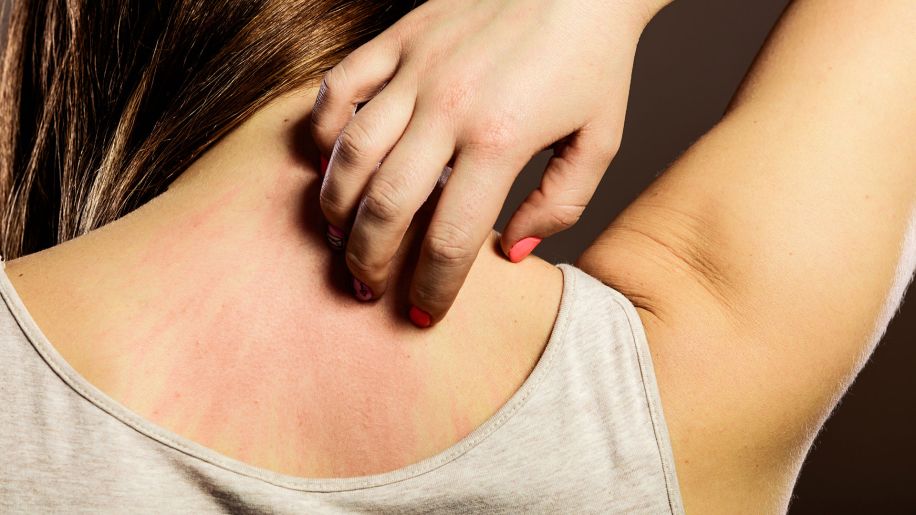
There’s only one type of psoriasis
Although plaque psoriasis is the most common form of psoriasis, there are actually several distinct types, each with their own symptoms and treatments. Some common types of psoriasis include:
- Plaque psoriasis: The most common form of the disease, plaque psoriasis is characterized by inflamed patches of skin with a white or silvery appearance.
- Guttate psoriasis: This type of psoriasis is often triggered by a strep infection in childhood and manifests as small, round lesions.
- Inverse psoriasis: Appearing in body folds, inverse psoriasis produces very red, smooth lesions.
- Pustular psoriasis: White non-infectious pustules that most often form on the hands and feet define pustular psoriasis.
- Erythrodermic psoriasis: The rarest type of psoriasis—affecting only three percent of those with psoriatic disease—erythrodermic psoriasis is a severe form that causes intense itching and pain, and makes the skin peel off in sheets.
Although psoriasis is a chronic condition, with the proper treatment and emotional support, it is possible to live comfortably and in control.
Featured Content


video

article

article

article
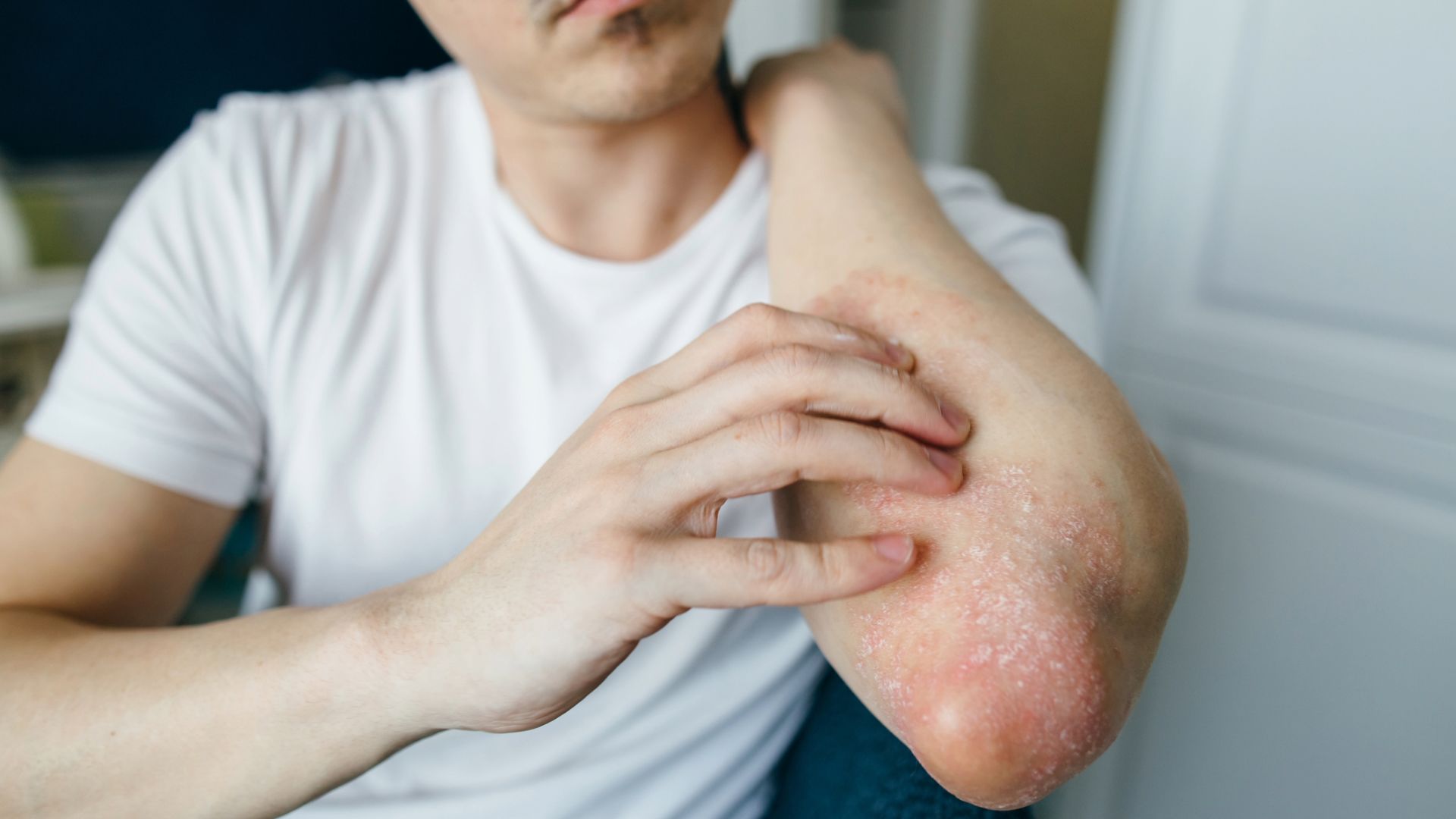
article
